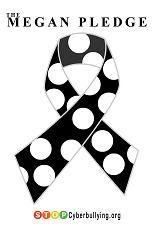I've been having a lot of anxiety attacks, depression attacks, and general upset lately. I'll tell you all about it when things start to smooth out again, but the details are not what's important today. The reason those details are causing a lot of discomfort, however, is.
It's Wednesday. That means I teach a class and make a stop at the adjunct office before I do, where there is another adjunct doing the same thing I'm doing- printing out lesson plans, worrying about whether or not to change something in the class format for the evening, sometimes meeting with students. Usually, he giggles at my lecture, because the class is on modern and contemporary art, and hey, performance and installation arts can be amusing to an economics professor. Just saying.
And so we chatter a bit. He noticed my van is smothered in autism bumper stickers, and his (now grown) kids both have issues, so we swap war stories a lot. What works, what doesn't work, how different kids need different things. We were talking this evening about some of the upcoming events and past events and details and stuff, when the question came:
"What's his prognosis?"
It is likely a question that would sound odd outside the special needs community, especially in those terms. Prognosis is a medical outlook. We talk about "prognosis" when we talk about things like major infections and broken bones. It's a question that makes me wince. What will Joey's future look like? That's what he meant.
If you had asked me that question four years ago, I would have been all bubbles and grins. No, we weren't all roses and good times, but we were headed in the right direction. Joey wasn't reading for me at home, but at school he was reading on the 6th grade level. He was tested a few months later, and passed the final math test for the 5th grade- and he was starting third grade. He would walk between classes by himself, between classroom and the cafeteria by himself, between the bus and classroom by himself. He was gaining social confidence, with a few hiccups as he was very trusting. His language use was improving. He would participate in regular classes with a little support. All arrows were pointing to progress, growth, and the steady pace of growing up, with a few (not unexpected) blips on the map. Prognosis? Independence, higher education, mathematical brilliance, adulthood of normal levels of support and opportunity. It was looking good.
Today, I haven't a clue.
As we prepare for 8-10 weeks of intensive treatment for Joey, we feel we hit a major block in the road and fell into a sinkhole. Joey's academics have made a steady march backwards. His ability to cope with the school environment has turned into a disastrous and dangerous nosedive into depression and severe anxiety. If I had to make a guess now, I'd be at a complete loss. I feel like if we didn't have this intervention on the horizon, the "prognosis" would be dependence, limiting communication disabilities, and severe depression struggles, with no light at the end of that tunnel. With it, I think we're having to come to grips with the fact that Joey is going to take longer to get to independence, and gain the skills he needs and access the education he needs to be successful in supporting himself. We've simply lost too much time.
We find ourselves in the grips of stigma that we intend to fight full-out. Some kids just need longer to get where they need to go. Some kids need more help. 18 and 21 are completely arbitrary marks on a development spectrum, and we all need to face the possibilities of difference. I went to school with a kid who was very much a "space cadet" all our growing up. He's now got a college degree and is doing just fine- he just took a little longer to get there. So what?
We're all adults for a very long time. After a while, does it really make that much difference if we get what we need when we're 17 (when I graduated high school) or 22 (when kids automatically age out of the school system)? And if we get what we need by 22, why would that make higher education a problem? Why should a slower developmental timeline be a serious problem?
How will the stigma of slower development affect Joey's opportunities to have a happy, fulfilling life?
As parents, we do our best to help our kids develop and grow, and we need to do more to respect the unique pace of each child. The push for earlier and earlier academics is one we should consider carefully, and reconsider what other skills young children might need to develop and learn besides letters and how to sit in a chair and fill in a little circle. Meeting kids where they are, how they are, and providing them with individualized challenges and successes takes a lot more work than our current education system is willing to give it, even in special ed (where "individualized" is supposed to be the cornerstone of the education plan). The next time someone tells me Joey won't suffer academically in a self-contained classroom, I'm going to laugh, while asking what planet they are on- because they certainly aren't from ours. Joey's scatter of splintered skills needs to be taken up and addressed. I keep saying we need to play to his strengths, in order to help him with his challenges. I'm tired of being ignored, especially to the point where Joey is failing math tests.
Really? MATH tests?
We are in the grips of understanding that Joey needs more support in order to face his challenges. Those challenges have been left unaddressed so long, it will now take much more time to face and overcome them. We don't know what his future will look like, or how far he'll be able to go.
I suspect he will surprise us all.
Thursday, April 24, 2014
Subscribe to:
Posts (Atom)



















